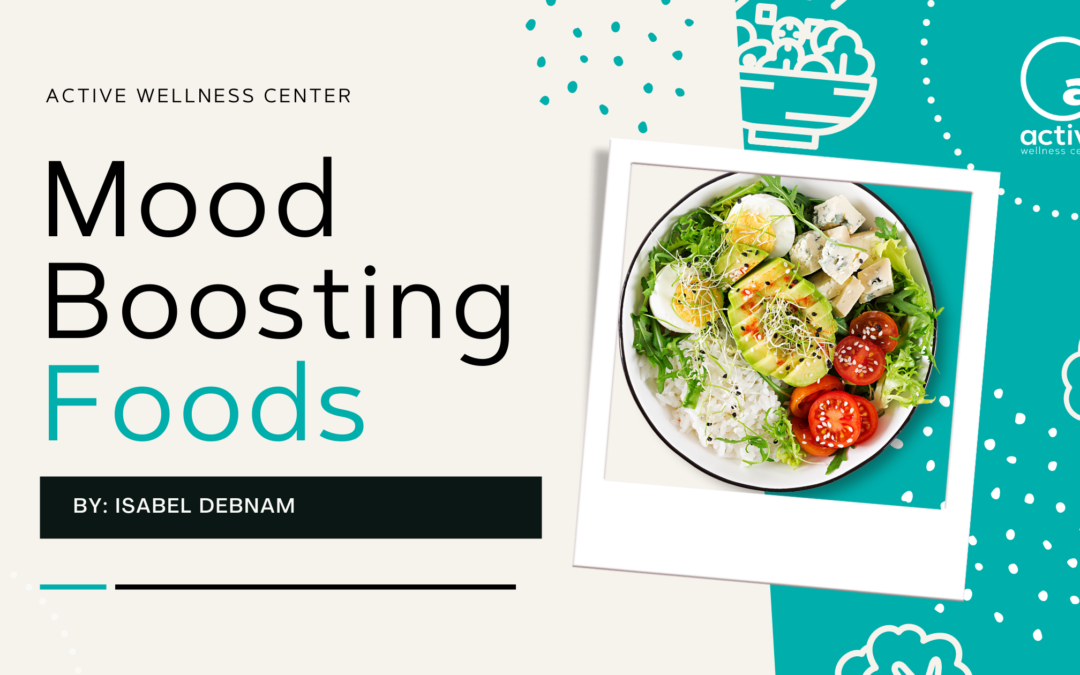Mood goes hand-in-hand with energy – if you’re in a good mood, you’re likely high-energy as well. When you’re low-energy, your mood often dips. That being said, food plays a major role on our mood because at its core, food is fuel. So, if you do the math…good food = a good mood.
When you google “mood boosting foods” you’ll be inundated with countless lists of tryptophan-containing foods, such as turkey, beef, eggs, soybeans, dairy and fish. Tryptophan is an essential amino acid needed in the synthesis of serotonin – aka the “feel-good” hormone (link). While this is true, and tryptophan is an important nutrient, I feel compelled to give credit where credit is due: to carbohydrates. I’ll spare you the science, but just know that eating carbs ultimately allows tryptophan to make serotonin (link). So, while tryptophan technically does create more “feel-good” hormone, there’s so much more to boosting your mood than simply eating more turkey and eggs.
Here are some additional nutrients that can play a role in boosting your mood:
- Fiber-Rich Carbohydrates: Talking about mood boosters without including carbs would be insane. Carbs are your body’s preferred source of energy, as it’s the easiest macronutrient for your body to break down. For more slow-burning and long-lasting energy, aim for complex carbs high in fiber. Think: fresh fruits, whole grains, legumes, starchy veggies, etc.
- Healthy Fats: Similar to fiber-rich carbs, fats are another source of slow-burning energy that will keep your mood stable. Unsaturated fats are also linked to numerous neurological benefits, allowing for the absorption of fat-soluble vitamins. You can find them in: fatty fish, nuts, seeds, olives, avocados, sesame oil, etc.
- Antioxidants: Antioxidants reduce free radicals in your body, thus, reducing stress on your cells. Decreased oxidative stress in your body 🡪 efficiency in cell function 🡪 improved energy. Think: pigmented foods like berries, turmeric, dark chocolate, pomegranate, sweet potato, etc.
- Adaptogens: Adaptogens are herbs known for their health-supporting properties, such as reduced stress/anxiety and improved brain function and focus. Some popular adaptogens include: Ashwaganda, Tulsi, Lion’s Mane, Reishi and Maca.
- Magnesium-Rich Foods: Magnesium is a common deficiency among the general population, and is heavily involved in our body’s stress response (link). Regulating magnesium levels will have significant positive effects, one of which is improved mood! You can find magnesium in foods like: cacao, leafy greens, dairy, pumpkin seeds, cashews, avocados, etc.
- Water: This one goes without saying, but I feel obligated to include it. If you’re hydrated, you’re 10x more likely to be in a better mood – I promise.
You can really find “mood boosting” properties in so many foods. In isolation, though, most foods aren’t going to get the job done. The key is to consume consistent meals with adequate variety, paired appropriately (protein, carbs, fats). If you’ve ever been hangry, you know what I’m talking about. So, before you load up on tryptophan or Ashwaganda, make sure your core macronutrients are covered! And if you’re still not interested in the “balanced diet” approach, chocolate works just fine in the short-term 🙂

Written by:
Isabel Debnam, a Registered Dietitian supporting the nutritional needs at Active Wellness Centers Petaluma and Napa.
Contact Isabel.Debnam@activewellnesscenter.com for additional support and to schedule your free first-time discovery consultation available to current members.

